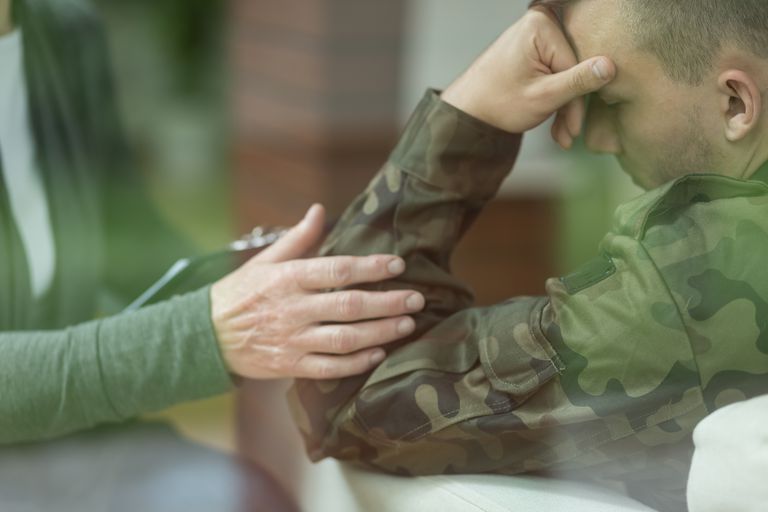New research published in the European Journal of Psychotraumatology found that female partners of military personnel are more likely to experience depression and binge-drinking than women in the general population.
For the study, researchers at King’s College London looked through the data of 405 women in military families to examine any health outcomes associated with probable depression and alcohol consumption. Depressive symptoms were measured utilizing a screening tool, while any binge-drinking was assessed through a self-reported screening tool.
“Survey data from 405 female spouses/partners of current and former UK Service personnel participating in a study of military-connected children (2010–2012) was analysed,” according to the findings. “Comparisons to women in the general population were made using the 2007 Adult Psychiatric Morbidity Survey.”
Based on the findings, military partners were less likely to consume alcohol frequently but were twice as likely to binge-drink compared to non-military women. In particular, 9.7 percent of military partners reported binge-drinking episodes on a daily and weekly basis, compared to 8.9 percent observed among non-military women. Rates of binge-drinking increased among military families separated for more than two months due to deployment.
The binge-drinking observed in the study, researchers say, may be the result of poor coping strategies among military spouses during long absences.
Moreover, upon assessing probable depression, researchers found at least 7 percent of military spouses had exhibited enough symptoms to meet the criteria, compared to 3 percent of non-military women.
“Our results indicate that healthcare professionals should be attuned to the impact military life can have on the mental health and wellbeing of family members. There are lots of support options available for military families out there, but these are not always easily accessible,” said Nicola Fear, a professor, and researcher at the King’s Centre for Military Health Research at the Institute of Psychiatry, Psychology & Neuroscience (IoPPN).
Rachael Gribble, the study’s lead researcher, added: “While the majority of families cope well with the added pressures of military life, the additional challenges faced by military families may explain the additional mental health needs and higher rates of binge-drinking we found among military partners.”
“More research is needed to help find out more about what contributes to depression and problematic drinking in this population.”


